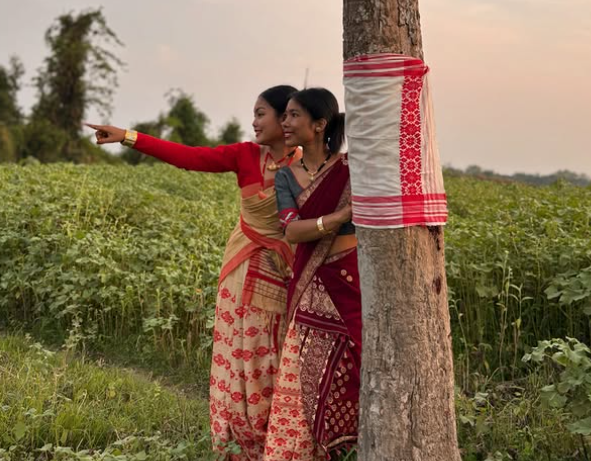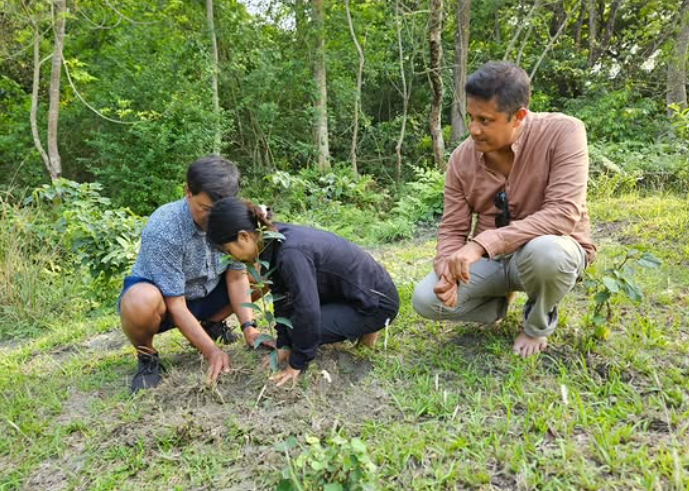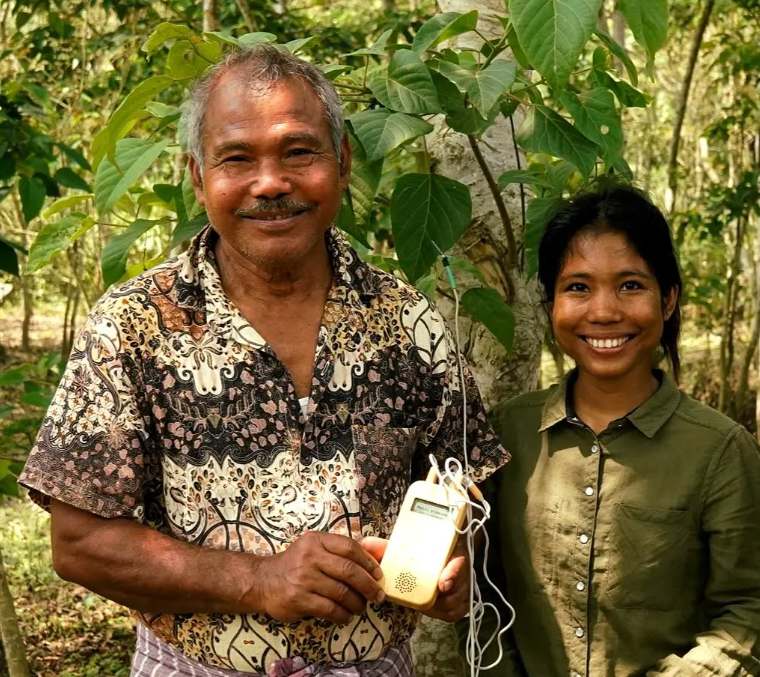Munmuni Payeng, 25, has stepped into her father’s legendary footsteps to become Assam’s “Forest Queen,” leading an ambitious effort to reforest Majuli—the world’s largest and most threatened river island.
Through her organisation Seuj Dhoroni, Munmuni is mobilising communities, children, and women to plant one million native trees, aiming to heal land bruised by floods, erosion, and shrinking habitats.
Her grassroots green revolution, rooted in resilience and hope, is being widely celebrated by conservationists, local officials, and everyday islanders as crucial to Majuli’s survival and the climate future of Assam.
Born of the Forest: A Life Shaped by Nature

Munmuni’s story begins “under the shade of trees her father planted,” growing up in the ever-transforming wilds of Majuli. Her childhood was shaped by both the serenity and the vulnerabilities of her home—floods that arrived unbidden, sandbanks that vanished overnight, and elephants wandering through villages.
Inspired by her father, Jadav “Molai” Payeng, internationally known as the “Forest Man of India,” she inherited a powerful lesson: every tree is both a shield and a promise. “Trees are my siblings,” Munmuni says, recognising not just heritage but an unbroken commitment to nurturing life.
Her early lessons—chasing butterflies among saplings, watching her father’s decades-long labour—fuel her unwavering resolve to continue planting hope where devastation once grew.
Green Guardians: Building a Pro Planet Movement
With Seuj Dhoroni, Munmuni has expanded the mission beyond the shadow of her father’s lush Molai Forest, bringing together Adivasi and local Assamese communities, women’s groups, and schoolchildren in hands-on conservation. She champions local tree species—Bombax ceiba, jackfruit, mango, Indian jujube—that rebuild soils, feed wildlife, and provide livelihoods.

Her work is as much about growing people as forests: by encouraging children to act as “mini-foresters” and ensuring women shoulder leadership roles, she is nurturing a generation that puts the planet first. “If this green cover vanishes, the planet will become uninhabitable,” Munmuni often reminds her team, underscoring the urgency and shared responsibility of their mission.
Majuli’s Fight for Survival: Challenges and Community Strength
Every year, Majuli’s residents face the fear of land lost to floods, homes swallowed by the Brahmaputra, and wildlife forced into ever-shrinking refuges. Munmuni’s green initiative isn’t just about planting saplings; it’s a direct response to the island’s existential crisis. Her teams—friends, family, youth from Bihari, Mising, and Ahom communities—work together to replace trees lost to seasonal floods and clash with wild elephants.
This broad coalition, grounded in inclusion and local wisdom, is what gives the project its strength and staying power. Officials, too, commend the work as a vital climate adaptation, ensuring not only biodiversity but also food, shelter, and hope for those who call Majuli home.

The Logical Indian’s Perspective
Munmuni Payeng stands as a beacon of what true environmental stewardship can achieve—when vision, legacy, and collective action come together for the common good.
Her journey shows that ordinary individuals, armed with care and compassion, can shape the fate of entire landscapes and communities. At The Logical Indian, we are inspired by this spirit of community empowerment and ecological empathy.












